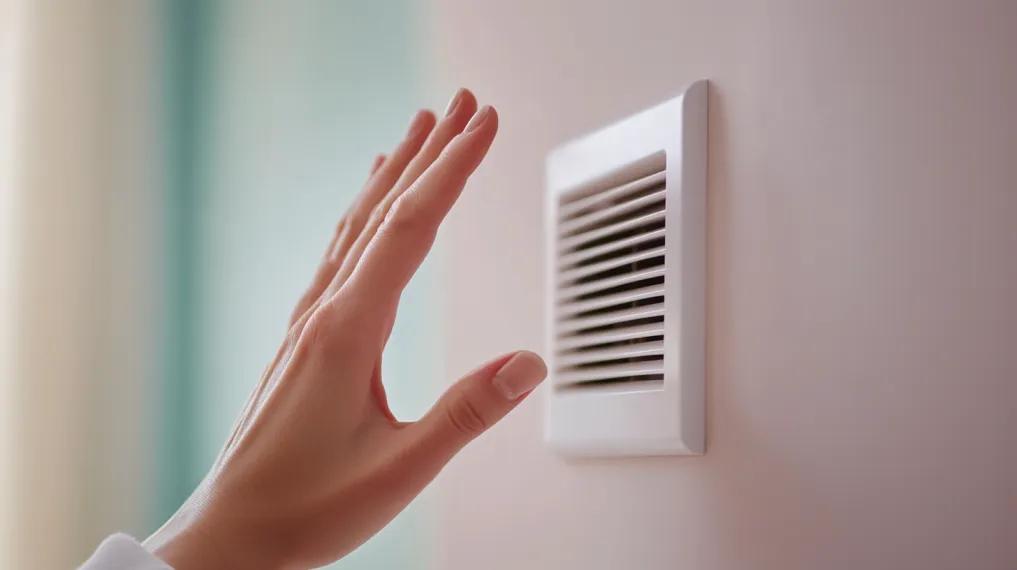Why Is My AC Not Blowing Cold Air After a Power Outage?

A power outage can be a hassle, especially during the sweltering summer months when your air conditioner is working hard to keep your home cool. But what does it mean if you find your AC not blowing cold air after a power outage?
It’s a frustrating problem, but one that many homeowners face. HVAC.com explains what can cause this cooling issue after a power outage and how you can troubleshoot your air conditioning system if this happens to you.
Common Causes of an AC Not Blowing Cold Air After a Power Outage
Power outages can disrupt the normal functioning of your air conditioning system in several ways. Here are some common reasons why your AC might not blow cold air after the power is restored:
Tripped Circuit Breaker
When the power goes out and comes back on, the surge of electricity can overload the system, causing the breaker to trip. This safety feature is designed to protect your air conditioning unit from damage, but it also means that the system won’t work until the breaker is reset.
Blown Fuses
Along with a tripped breaker, a power surge can also blow fuses in your AC system. These fuses are part of the outdoor unit and are necessary to run the compressor and fan. If a fuse is blown, your air conditioner won’t be able to blow cold air.
Thermostat Issues
If the power outage caused your thermostat to reset or malfunction, it might not communicate properly with your cooling unit. This can prevent the system from turning on or cooling your home effectively.
Capacitor Failure
The capacitors provide the initial jolt of electricity needed to start the compressor and fan motors, then keep them running through the cooling cycle. Power surges can damage the capacitor, leaving your air conditioner unable to cool your home.
Compressor Failure
The compressor is responsible for circulating refrigerant through the system, and it is sensitive to changes in voltage. A sudden surge when the power returns can cause the compressor to fail. If the compressor is damaged, the air conditioner will not be able to cool the air.
Blower Motor Damage
The blower motor pushes the cooled air through your home’s ductwork. If voltage fluctuations damage the blower motor, the system cannot circulate air effectively, even if it is able to cool the air. This can result in weak airflow or no air movement at all.
Troubleshooting Your Air Conditioner After a Power Outage
If you notice your AC not blowing cold air after a power outage, try these steps to troubleshoot the issue:
- Check the Circuit Breaker: The first thing to do is check your home’s electrical panel to see if the AC breaker has tripped. If it has, simply reset it by flipping the switch off and then on again. If the breaker trips repeatedly, it’s a sign of a more serious issue, and you should call a professional.
- Inspect the Fuses: If resetting the breaker doesn’t work, the next step is to inspect the fuses in your AC unit. This requires removing the panel on the outdoor unit. If you’re comfortable doing this, check if any fuses are blown. Replacing them is relatively straightforward, but if you’re unsure, it’s best to call an HVAC technician.
- Reset the Thermostat: Check your thermostat to ensure it’s set to the correct mode (cooling) and that the temperature is set lower than the current room temperature. If it appears to be malfunctioning, try resetting it by turning it off, waiting a few minutes, and then turning it back on.
When to Call a Professional
While some troubleshooting steps can be handled by the homeowner, certain issues require professional attention. If your AC isn’t blowing cold air after a power outage and you’ve checked the basics (breaker, fuses, thermostat), it’s time to call in an HVAC technician.
Professional air conditioning repair services can help with:
- Compressor Repair or Replacement: Repairing or replacing the compressor is not a DIY job. A professional technician has the expertise to diagnose compressor issues caused by voltage fluctuations during a power outage and can perform the necessary repairs or replacements safely and efficiently.
- Blower Motor Repair or Replacement: If your blower motor has been damaged by a power surge, a technician can assess its condition and determine if it can be repaired or if a replacement is needed to restore proper air circulation.
- Capacitor Replacement: Handling electrical components like capacitors can be dangerous, so it’s best to leave this to a pro. A technician can test and replace the capacitor to get your AC back up and running.
- Comprehensive System Check: A professional can perform a thorough inspection to identify any underlying issues that may have been worsened by the power outage. This ensures your cooling system is fully operational.